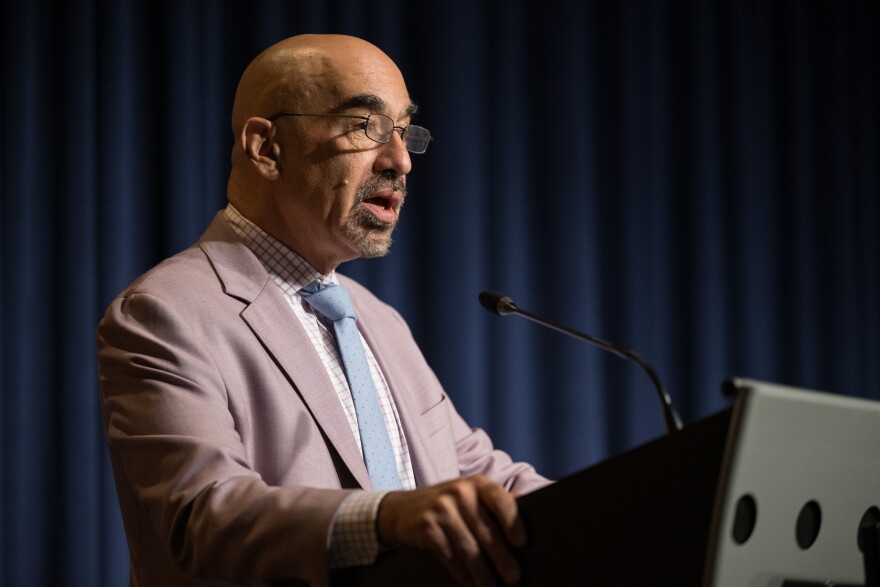NASA's mission to psyche
NASA is launching a spacecraft to visit a metal-rich asteroid called Psyche that could help explain the formation of our own planet.
It’s a curious rock, made of nickel and iron, not rock and ice like many other asteroids.
“Psyche is a mission of first the first journey ever to a metal asteroid that could reveal clues about planetary cores and how planets form and evolve early in our solar system," said Laurie Leshin, director of NASA’s Jet Propulsion Laboratory.
This mission to Psyche will launch on SpaceX’s Falcon Heavy rocket as early as Oct. 12 and will arrive to the asteroid in 2029.

Lori Glaze, director of NASA’s Planetary Science Division, said that by studying asteroids like Psyche we can learn more about how some planets, like our own, were created.
“Asteroids are your remnants. They're the left-over pieces that built up the planets and the moons in our solar system," Glaze said. "That's why we find them so fascinating is that each different type of asteroid can tell us a different part of the story about how our planets formed how the solar system was formed."
It’s been quite a time for asteroid science. The OSIRIS-REx spacecraft delivered a capsule filled with dust from the asteroid Bennu. Dante Lauretta, OSIRIS-REx mission’s principal investigator, said like Glaze, he is excited to study a piece of rock that could be the key to understanding our solar system.
"This asteroid [Bennu], its chemistry was established over four and a half billion years ago, before the earth existed," Lauretta said. "It has survived the chaotic history of the solar system for that extensive period of time. Now it is a time capsule of what was happening at the dawn of the solar system. What I'm really interested in is, how did the origin of life get started?"
A new focus on UFOs
UFOs are moving from the fringes to the front page.
For years, talk of UFOs and alien visitors were on the fringe. But now, as the Department of Defense and NASA are publicly acknowledging the existence of unidentified anomalous phenomenon, or UAP, the conversation has gone mainstream.

Sarah Scoles is a science journalist who has reported on the search for alien life and the community surrounding UFOs and UAPs. Her most recent book is They Are Already Here: UFO Culture and Why We See Saucers. She said that people are pleased that influential organizations are taking UFOs seriously.
"There is a group of people within the UFO community who was very happy that, you know, there are official sources and official organizations really paying attention to this topic, taking it seriously investigating it scientifically,” Scoles said.







